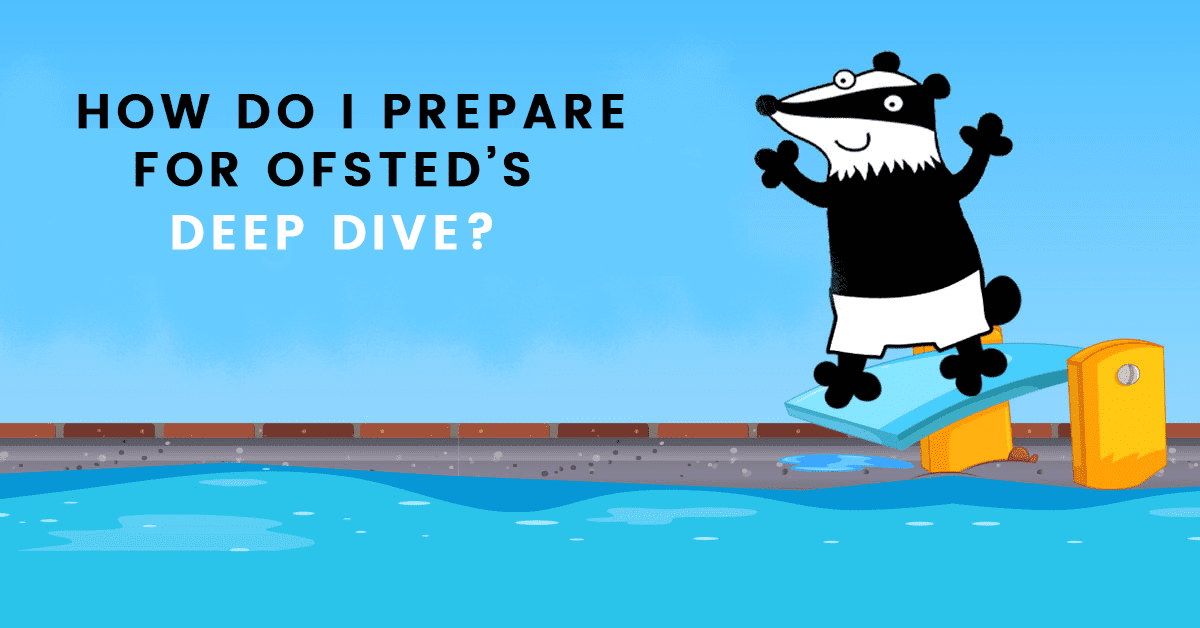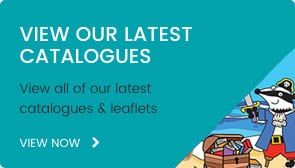Ofsted’s Reading Deep Dive – Questions and Phonic Focus
We’ve gathered information from a number of sources including government documentation, research into frequently asked questions during inspections, and as much information as we could glean from the leading educational publishers whose reading schemes we stock. This should help teachers to prepare for the reading deep dive, ensuring that you have all the information you need on how your existing resources meet the new criteria (including the newly revised DfE guidance on the teaching of phonics) and allowing you to identify any gaps.
This deep dive includes a number of elements:
- Evaluation of senior leaders’ intent for the reading curriculum and their understanding of its implementation and impact
- Evaluation of curriculum leader’s long and medium term planning and thinking
- Discussion with teachers to understand how their choices are informed by the curriculum (planning for content and sequencing)
- Lesson observations of deliberately and explicitly connected series of lessons (4 to 6 lessons)
- Discussions with a group of pupils who were in the lessons observed
- Scrutiny of books and pupils work who are part of classes that have been (or will be) observed by inspectors (they'll look at 6 pieces of work per year group, for at least 2 year groups).
The aim of the deep dive is based on Ofsted’s motto of "let’s see that in action together” to allow inspectors to gather the necessary evidence to form an accurate evaluation of how education flows from intention to implementation to impact within a school. This is done in collaboration with leaders, teachers and pupils to interrogate and establish a coherent evidence base on the quality of education.
The School Inspection Handbook contains key expectations which inspectors will consider when making a judgement about the quality of reading provision within a school. Among these expectations are:
- Reading is prioritised to allow pupils to access the full curriculum offer
- A rigorous and sequential approach to the reading curriculum develops pupils’ fluency, confidence and enjoyment in reading. At all stages, reading attainment is assessed and gaps are addressed quickly and effectively for all pupils. Reading books connect closely to the phonics knowledge pupils are taught when they are learning to read
- The sharp focus on ensuring that younger children and those at the early stages of reading gain the phonics knowledge and language comprehension necessary to read, and the skills to communicate, gives them the foundations for future learning.
This focus on the importance of quality phonics teaching has been strengthened further with the publication of recently updated documentation 'The Reading Framework’ (July 2023). The content supports the models of teaching reading advocated in the National Curriculum for English namely that ‘Children need both good language comprehension and good word reading to become good readers’ and that (The Reading Framework, p17):
- language comprehension and composition are developed by talking, listening to and talking about stories, and by learning poetry and songs
- decoding and encoding can be taught through a systematic synthetic phonics (SSP) programme.
This focus on phonics, though not new, is now more precise. Ofsted has specific expectations of how successful phonics teaching is conducted in schools and will form judgements based on these expectations. Inspectors will consider whether ’a rigorous approach to the teaching of reading develops learners’ confidence and enjoyment in reading. At the early stages of learning to read, reading materials are closely matched to learners’ phonics knowledge.’
In April 2021 the Department of Education announced changes that will impact the teaching of phonics in many schools as well as the phonic books and resources that will be needed to support it. The 2007 Letters and Sounds framework set out to provide schools with a basis for teaching systematic synthetic phonics (SSP). Although this has never been statutory, over 50% of schools use this as the basis of their phonics teaching and it was included on the list of approved phonics programmes on gov.uk. However, it is not, and has never been a full programme setting out in detail how phonics will be taught on a week-by-week basis. It relied upon schools building their own programme of resources around the handbook and in many cases updating the progression to bring it in line with current best practice.
Although some schools have created their own teaching programme based on 2007 Letters and Sounds very successfully, this is not the case for all schools. Moreover, it is no longer sufficient to simply state to Ofsted that your school is following Letters and Sounds — you will need to show you are using a successful approach including a teaching programme, relevant resources, reading books and high-quality staff training that builds on this or another SSP teaching programme. Ofsted specify that the approach must be rigorous, systematic, used with fidelity (meaning any resources used should exactly match the Grapheme Phoneme Correspondence (GPC) progression of their chosen SSP approach), and achieve strong results for all pupils, including the most disadvantaged. There is emphasis on children being able to keep up rather than catch up so that children at risk of reading failure are given the opportunity for extra practice and support from the beginning.
More detail on this can be found in The Reading Framework (DfE July 2023).
This is the area in which we, as educational book suppliers, are receiving the most queries, as this is a more stringent approach than previously seen. We have therefore gathered together information from the major educational publishers detailing which sounds are covered by which books, so that the books children are reading in class and taking home can be closely matched to the sounds they have learnt in school. You can review mapping and supporting documents here which may help you to audit your resources to ensure that you have the books you need to support an in-school or commercially available SSP programme. Browse phonics resources here.
We also stock a range of commercially available SSP’s which have been validated by the Department of Education such as Bug Club Phonics, Little Wandle, Floppy's Phonics, Read Write Inc and Rocket Phonics
Is funding available to support schools to purchase new phonics resources?
There is funding available to support schools to purchase and embed complete SSP programmes from the validated list, including their associated training and resources. Schools who are interested in purchasing a validated programme can contact their local English Hub to see what support they are eligible for. Contact details are available on the English Hubs website.
What Questions come up in a Reading Deep Dive?
Questions around phonics:
Below is a list of questions OFSTED may ask your literacy or reading lead, as well as pupils and class teachers. This list has been formulated based on what other teachers have reported from their inspections under the new framework and on our knowledge of the subject area. Many answers will be specific to your school and your teaching practice, but this is intended to give you a heads up in your preparations. The teaching of phonics is key as schools will need to show an SSP (Systematic Synthetic Phonics) approach that includes classroom teaching practice, staff training and resources that support learning, such as books for reading.
- Do you have a systematic synthetic phonics teaching programme in place? See p57 of The Reading Framework for an audit document
- Are staff trained in delivering the systematic synthetic phonics teaching programme?
- How does the school track, ensure and assess progression?
- How do you know which children are not on track? How do you assess? How regularly?
- What happens when children are not making the required progress? How do they catch up?
- Phonics screening check — if your results are good, how are you achieving that? If they need improvement, what do you plan on doing to make results better?
- Once you have identified children in need of extra support to keep up, how is this delivered? See page 67 of The Reading Framework for an audit document.
- How do you ensure children's books help children to practise the sounds they have learnt?
- How do you ensure children know the digraphs, letter sounds etc? To blend sounds into words? To read exception words?
- What is your termly plan for what you want children to know with phonics leading up to the screening check?
- How much time do children spend learning phonics?
- When do you start teaching letter-sound correspondence? Why then?
- How many sounds will your children know by the end of the term? Do you have an outline/plan for this?
- Think about where we are in the year now — Where are the children up to? Which children are not at this point? Why?
- What are you doing to remedy this? Can you show me what they know? (read with children here potentially).
- How do you ensure children build strong phonological skills?
A key focus of any reading deep dive will be on establishing whether a school has strong phonics teaching; however, school leaders and teachers must also show that they are aiming to develop understanding of language and enjoyment of reading from early years onwards.
What will inspectors look at during deep dives into early reading?
Gill Jones, Deputy Director for Early Education at Ofsted states that inspectors will consider the extent to which:
- direct, focused phonics is taught every day in Reception and key stage 1
- children read from books with the sounds they know, while they are learning to read
- teachers and teaching assistants provide extra practice through the day for the children who make the slowest progress (the lowest 20%)
- all children in Year 3 and above can read age-appropriate books
- teachers instil in children a love of literature: the best stories and poems.
Read the full blog here.
Below are further questions Ofsted might ask to establish how your school seeks to create a reading culture:
- What is your action plan for developing reading this year? What are you trying to improve upon?
- How does reading fit with the wider curriculum?
- What whole school reading policies do you have? Is sending reading books home a whole school policy?
- How do you make sure early reading is prioritised?
- How do you choose books to read aloud to children? See p28 of The Reading Framework for an audit on encouraging a love of reading, for guidance and a Storytime Audit
- How often do teachers read to children?
- How do you make sure story time is engaging? How do you support teachers in doing this?
- How do you make sure children develop a love for reading? In class and at home?
- What do you do to engage children in reading?
- How do you select the books that children read? The Reading Framework emphasises the importance of children reading decodable books and sharing stories with a parent or adult to promote reading enjoyment (these do not need to be decodable).
- How do you decide upon the texts that children get to know very well?
- How do you improve children's reading fluency?
- How are the lowest 20% supported with reading?
Questions about Reading at Home:
Whilst it is key that children learning phonics access books that are matched to their phonic knowledge, Ofsted also encourage parents and carers to read to children and talk about the story with them to develop a love of reading, understanding and language development. See p133 of The Reading Framework for an example of a leaflet schools can create to promote reading at home, or read our blog 'Parental Engagement — Reading at Home' for ideas, inspiration and a free downloadable leaflet, which can easily be printed and sent home in book bags or emailed directly to parents / carers.
- What books do children take home? Do they pick or do you pick? If you pick, how do you choose them?
- How often do children change these books?
- How do you engage and encourage parents to support children with the school’s approach to phonics?
- Are pupils able to take home phonic texts that are appropriately matched to their ability?
- Are pupils taking home books to share with a parent or carer to develop a love of stories?
- Do parents get involved with children reading these books at home? How do you know?
- How do you help parents to foster a love of reading at home?
- If parents can't read themselves, how are you supporting them to help their child read at home?
Key Stage 2 Reading Questions:
- How do you ensure children are fluent and accurate readers past year 2?
- With older children, how do you know they are reading at home?
- Are your KS2 teachers phonics trained? How are they supported to use phonics in their teaching?
- How is reading taught in key stage 2?
- Does your school have appropriate resources to appeal to children in KS2 who may still need specific phonics teaching or intervention?
- See p76 of The Reading Framework for an audit document on older pupils who may need to catch up.
Questions for Pupils:
- What is your favourite book you've read at school this year?
- What books have you taken home? How often do you take them home?
- Does your teacher read aloud to you? When? How much?
- Do your parents read with you? Do your parents know you have reading books that you take home?
- Do you enjoy story time?
- Do you read in other subjects?
Using high-quality books is paramount when it comes to improving reading outcomes. Gill Jones cites the following examples of inspector comments about schools judged as requiring improvement:
- "Pupils’ reading books are not always well matched to their reading stage. Books contain sounds they have not yet been taught. As a result, some pupils fall behind in their reading."
- "Staff try to develop pupils’ love of reading. Storytelling sessions occur daily, and these engage pupils well, but some of the books that staff read to pupils vary in quality."
Reading Framework guidance suggests schools carefully select core ‘read aloud’ stories and non-fiction in the following manner:
- Identify a core set of stories for each year group.
- Consider a range of stories set in the UK and around the world, both traditional and modern, as well as non-fiction.
- Refresh the list regularly, at least once a year, as new books are published, and new teachers arrive, to avoid it being set in stone.
If you are looking for engaging, high quality reading books for phonics, comprehension or developing reading for pleasure, Badger Learning can help. Our Book Collections team read many hundreds of brand-new children’s books even before they are published each year and work with teachers to stay on top of curriculum developments and changes in Ofsted requirements so that we can ensure that collections fit the needs of schools today. We provide the highest quality service, expert knowledge and, where you need it, personalised service with advice and recommendations. Quality is paramount; we ensure our book collections are age-appropriate, spot-on with regard to content and text level as well as being able to meet the required educational needs. Moreover, when you buy your reading scheme books from Badger Learning they are supplied fitted with free protective jackets to ensure your investment lasts. See our full range of resources here.
Ofsted expect schools to be able to demonstrate that their pupils embark on a reading journey which begins in reception and continues to year 6. Inspectors are looking for evidence of strong phonic teaching aimed at ensuring all pupils become adept at word reading and develop fluency. Once fluency has been achieved, there is an expectation that the concentration should shift to developing comprehension skills. Monitoring of this process should include regular assessment. Enjoyment and understanding of language should be promoted through listening to, sharing and discussing books. The reading deep dive will reveal whether strategies for word reading and language comprehension within a school ultimately lead towards achieving the following impact specified in the School Inspection Handbook: ‘Pupils read widely and often, with fluency and comprehension appropriate to their age.’
Written with advice and assistance from Karen Moncrieffe, an educational author and teacher.
Helpful Links:
Documents to help schools choose a phonics teaching programme from gov.uk
School Inspection Handbook from gov.uk
What Phonic Knowledge is in Which Books?
We've collated mapping & supporting documents from publishers of phonics resources here:
- Little Wandle — Big Cat Phonics for Letters and Sounds Revised
- Collins Big Cat Phonics for Letters and Sounds
- Bug Club Phonics
- Dandelion Launchers & Readers
- Essential Letters and Sounds
- Floppy's Phonics
- Reading Stars Phonics
- Read, Write Inc. Phonics
- Red Squirrel Phonics
- Rocket Phonics — Rising Stars Reading Planet
- Unlocking Letters and Sounds
More Resources From Badger Learning:
Meet the requirements of the New Reading Framework with Badger Learning
What’s the Best Reading Scheme for My School?
Collins Big Cat Phonics for Letters and Sounds
Little Wandle — Big Cat Phonics for Letters and Sounds Revised




